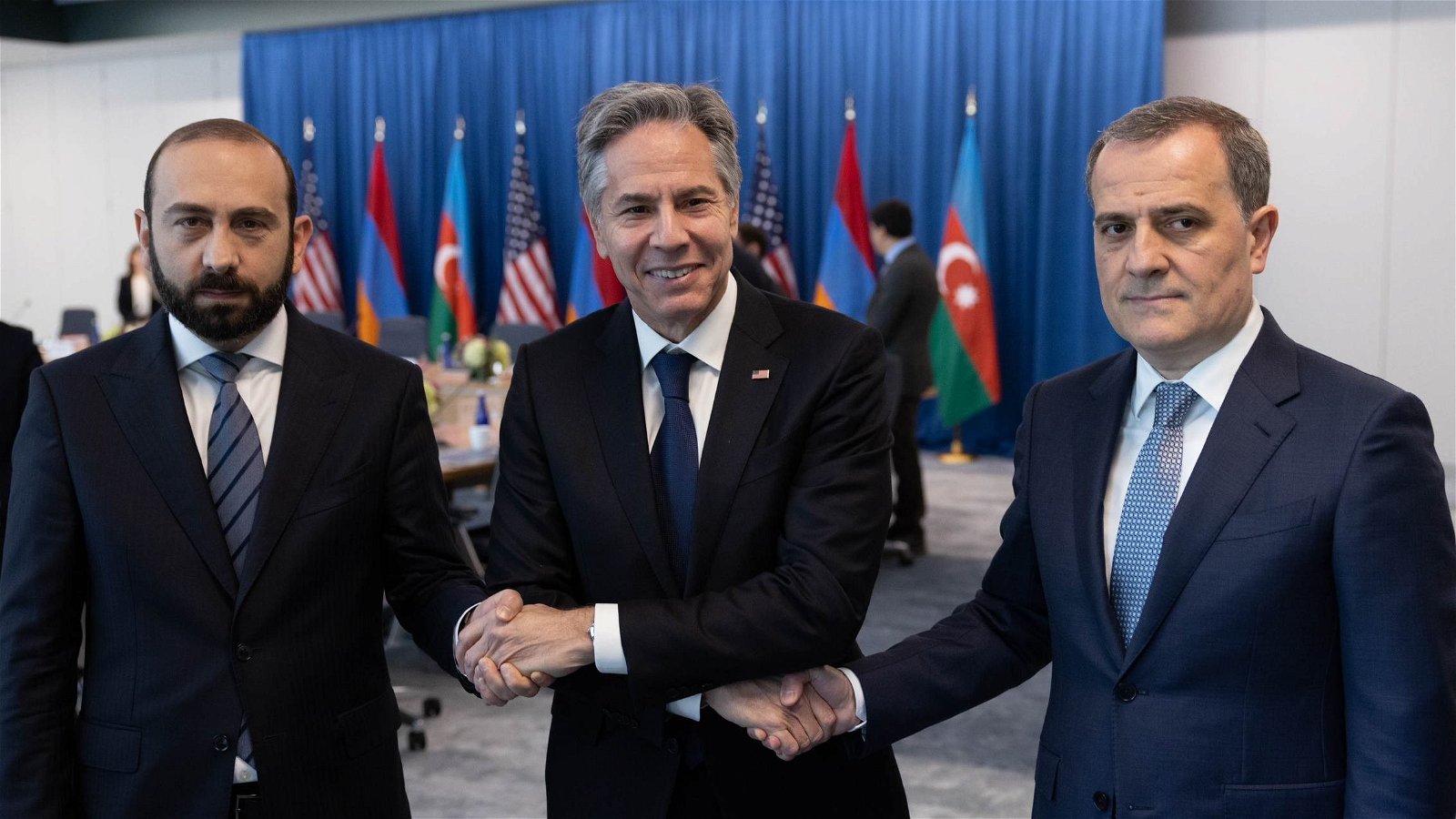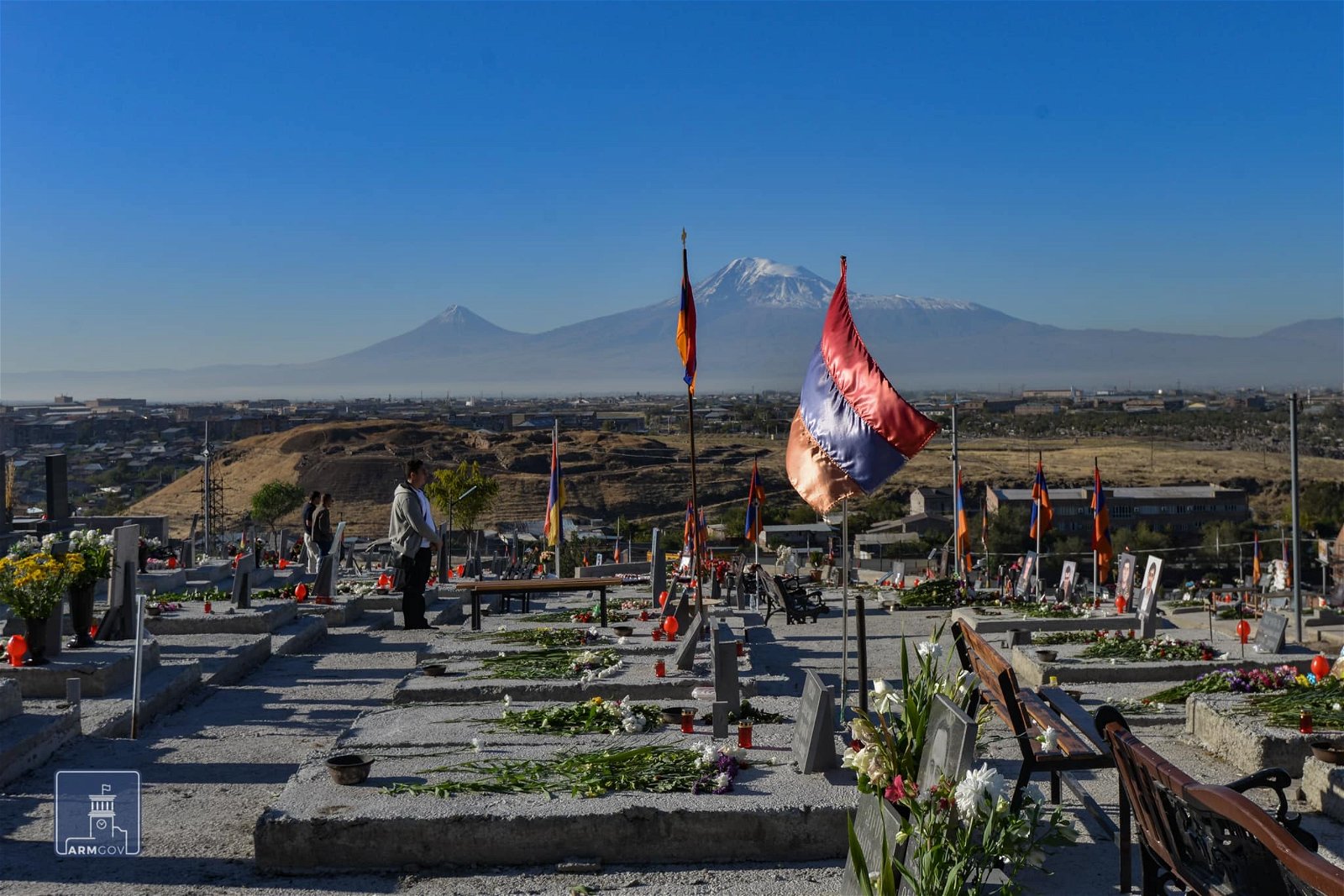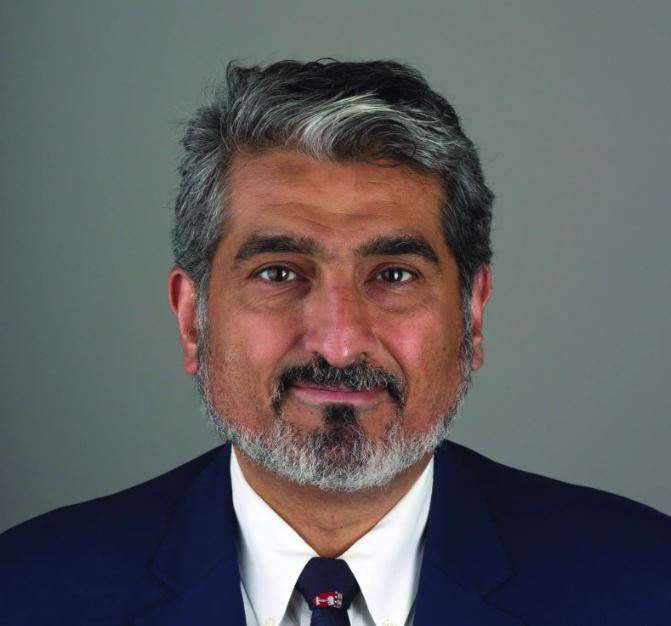By Ara Nazarian, PhD
Winston Churchill, a revered figure in the West and a defining example of British imperialism, brutality and racism*, once said, “The Americans will always do the right thing…after they have exhausted all the alternatives.” It appears that the Armenian Diaspora is trapped in the same mindset.
Artsakh is teetering on the brink of a humanitarian crisis and ethnic cleansing due to Azerbaijan’s eight-month-long blockade. Food supplies have dwindled to last a month or so on a once-a-day ration. Fuel supplies have been exhausted, including those for emergency vehicles. Just today, a pregnant woman lost her child, as there was no ambulance to transport her to the hospital.
Recently, the Center for Truth and Justice commissioned Luis Moreno Ocampo, a former International Criminal Court Chief Prosecutor, to produce an expert opinion on the situation in Artsakh. Moreno Ocampo stated, “There is reasonable basis to believe that genocide is being committed against Armenians…There are no crematories, and there are no machete attacks. Starvation is the invisible genocide weapon. Without immediate dramatic change, this group of Armenians will be destroyed in a few weeks.” This is one of the few examples of logical and appropriate steps the Diaspora has taken to address this crisis.
The Diaspora has appealed to every elected official and international organization with any jurisdiction to intervene on behalf of the Armenians of Artsakh—to no avail. In other words, they have appealed to entities without the power and/or the willingness to affect any change. The United States, the United Nations and the European Union have feigned concern and urged Azerbaijan to stop its genocidal campaign. Yet, they have offered only words with no action or enforcement. In the meantime, most have happily engaged in business as usual, buying Russian oil siphoned through Azerbaijan, selling weapons and attending banquets and events in Shushi and other regions of Artsakh currently seized by Azerbaijan. Right after the 2020 war, Baku opened a despicable open-air museum showing off their war trophies with mannequins portraying dead Armenian soldiers, where Azeri children could abuse the mannequins to satiate their Armenophobia, drilled into their heads through decades of propaganda. Soon after, Pres. Ilham Aliyev hosted an international conference entitled, “A new outlook at the South Caucasus: Post-Conflict Development and Cooperation.” After the conference, 27 guests from 15 countries visited the Azeri victory park, including representatives from the West.
Many righteous organizations, with and without appeals from the Armenian Diaspora, have gone on to stand on the right side of the issue and clearly state the realities on the ground in Artsakh. Unfortunately, these statements have fallen on deaf ears in Baku and every other capital in the world, resulting in zero actionable effort to change the situation on the ground.
While President Biden and Secretary Blinken may not want to see the ethnic cleansing of 120,000 Armenians in the Caucasus, their actions, or lack thereof, speak clearly.
The Biden Administration and the U.S. State Department have been unwilling to pressure Azerbaijan to stop the Artsakh blockade, which they could have done had there been the will. Unfortunately, they are motivated by geopolitical games to drive the Russians out of the Caucasus and to potentially open a second front against them, a trap the Russians have been careful not to fall into. They are also motivated to pressure Iran; however, the Iranians are not taking the bait either. While President Biden and Secretary Blinken may not want to see the ethnic cleansing of 120,000 Armenians in the Caucasus, their actions, or lack thereof, speak clearly. The State Department has quietly floated the idea of relocating the Armenians of Artsakh from their ancestral homelands to avoid the nightmare scenario of another genocide on the U.S. watch. This is nothing short of ethnic cleansing, without having to mop the blood off the floor afterward. The U.S. has also ruled out any sanctions against Azerbaijan. President Clinton has stated that his biggest regret was his inaction in Rwanda while in office, which is a nice sentiment but a meaningless one. His regret will not bring back the more than a million dead, but decisive and timely action certainly could have. What does this say about the lofty lectures in human rights and democracy we so readily deliver to the four corners of the world, whether they ask for it or not? Armenia, a nation where all levers of power are in the hands of one political party that uses police brutality and fear to stifle any dissent, is hailed as a “democracy” and cajoled by the West to make decisions against the interests and the will of its people. Yet, the same West refuses to punish a known belligerent despot who is committing ethnic cleansing in broad daylight. How does one reconcile this?

The Diaspora has knocked on every door and thus far has nothing to show for its actions. Its efforts have mostly been disparate and disorganized. This is partially due to a lack of cooperation and trust, diverging and competing interests, and the lack of systemic thinking. Unfortunately, they have yet to knock on the one door that matters, that of the Armenian government, the only entity tasked with guaranteeing the security of Artsakh. A few organizations have done so individually, but they have been brushed aside due to a lack of cohesion in the Diaspora and the remarkable ability of the Armenian government to divide and conquer. One of its crowning achievements is to drive wedges between the different segments of Armenian society and marginalize institutions, whether the Diaspora, the church, the armed forces or universities.
Dissent is one of the greatest forms of patriotism—to take a difficult stand when one’s government strays from the righteous path. The global Armenian nation has demonstrated its unwillingness and inability to do so and has settled for the next option, which is to ask others to do what they must do themselves. It takes less than a 30-minute drive from the center of Yerevan in any geographical direction to step into the early twentieth century. Yet, the city center is bustling every night with wine, beer, festivals and high-profile concerts. Most recently, the government announced a Snoop Dogg concert, ponying up $6M for yet another publicity stunt. This is while the Armenians in Artsakh are starving. Have we collectively gone mad? Have we lost any semblance of dignity, moral outrage and accountability to ourselves? Why would anyone in their right mind want to help us when we cannot find the courage to do so ourselves first?
Have we collectively gone mad? Have we lost any semblance of dignity, moral outrage and accountability to ourselves? Why would anyone in their right mind want to help us, when we cannot find the courage to do so ourselves first?
Constitutionally, the Armenian government is obligated to guarantee the security of Artsakh, and a recent poll shows that 93-percent of Armenians in Armenia oppose seeing Artsakh as part of Azerbaijan. Yet, the government has done the exact opposite during the past five years, including the war that they “fought” to lose, putting 5,000 of our youth in the grave and disabling tens of thousands while sowing the seeds of fear in the minds of Armenians. The Artsakh blockade is not a surprise, nor is it an irrational move. The Armenian government’s decision to give up Berdzor last year without any written agreement, followed by acknowledging Artsakh as part of Azerbaijan, set the stage for the Artsakh blockade, yet precious few in the Diaspora blinked an eye when these two preconditions were met by the collaborator regime in Yerevan. The regime and its allies have masterfully played the fear card to beat away any opposition to their efforts, painting them as saber-rattling and pining for another war. Yet, this could not be further from the truth. As part of the recent “Hayaqve” movement in Armenia, more than 55,000 citizens signed a petition to submit a draft law to the Central Election Commission of Armenia, stipulating severe criminal punishment for recognizing Artsakh as part of another state on behalf of the Republic of Armenia, as well as for refusing international recognition of the Armenian Genocide. The fact that an initiative must be formed to defend these sanctities demonstrates the depravity that has befallen the Armenian nation at the hands of this collaborator regime.
Armenian diplomacy has been an abject failure during the past few years. The government’s only posture is a cycle of retreats in pursuit of elusive peace that is nowhere in sight. One may wonder whether the myriad of successful Armenians in the Diaspora would hire a mediocre teacher who may have served as a double agent of Turkey and Armenia’s previous governments (a charge he has not denied), and a 29-year-old delinquent, neither with a shred of diplomatic or any other meaningful expertise, to negotiate on behalf of their companies. Yet, here we are, having given the reins to these two and their college dropout boss, who made his name through yellow journalism and agitation, to negotiate on behalf of Armenia and Artsakh. It is curious why the Diaspora is not calling them out on their incompetence. Is it a case of burying its head in the sand? Is it a case of remorse for cheerleading these collaborators five years ago and not knowing how to save face now? Is it the disbelief that our own can do this to us (meaning we know little of our history)? Is it not to appear divided? Is it not to air our dirty laundry? Or is it something else? Generally, things don’t get done right in Armenia because everyone is related to someone, and no one wants to shake the tree too hard; personal interests supersede those of the nation; allegiances lie elsewhere; everyone knows everything and can never be wrong; people hedge their bets to see who comes out on top, among other reasons or any combination thereof. I venture to say that the Diaspora is no different, and as long the Armenian nation pursues this myopic perspective, Armenia and Artsakh will continue to inch ever closer toward destruction by our enemies.

Knowing that the Armenian government plays by different rules these days, the onus is on the Diaspora to step up and lead the effort to save Artsakh. This requires dedication, action, clear red lines and a workable plan for all to get behind. The game, as it is, has no good outcomes for us. It is time that we change the parameters. Ending the blockade is not a goal; it is merely a means to an end. Yet, we cannot set our sights on the end of the blockade, since soon another crisis will appear. A real plan for the future must secure the independence of Artsakh. David Ishkhanyan is currently serving as the Speaker of the Artsakh Parliament—a glimmer of hope. He can petition the Diaspora to initiate proceedings at the International Court of Justice (ICJ) on behalf of the people of Artsakh to apply for external remedial secession. The Azeri aggression in 2020 and their subsequent belligerence in the last three years provide ample evidence with which the court can work. One may argue that any ICJ ruling will lack enforcement, and they will be right. However, this is the type of ruling that can and must be used as geopolitical winds constantly change and interests require realignment, something that the Armenian nation has not been adept at playing. Other powerful countries besides the U.S. and Russia can back the ICJ ruling, as it is clear that the U.S.-Russian game of chicken has one victim only: the Armenians of Artsakh. Preparation for this undertaking will require a multidimensional campaign that the Diaspora’s vast resources can easily support if only it gets its head straight. This campaign must take full advantage of a favorable ruling to garner the support of as many nations and international institutions as possible. The Diaspora can and must embark on this monumental task to save Artsakh because no one else will, including the Armenian government. The question is, are we ready to do this, or do we continue with business as usual in our comfortable homes?
*Those interested in learning about Churchill’s darker side can look into his support for the rise of fascism, his antisemitic and anti-working-class views, the Black and Tans, the bombing of Iraq in the 20s, the Bengal Famine and the suppression of the Greek resistance, among others.“
Originally Published in ArmenianWeekly.com
Ara Nazarian, PhD
Ara Nazarian is an associate professor of Orthopaedic Surgery at Harvard Medical School. He graduated from Tennessee Technological University with a degree in mechanical engineering, followed by graduate degrees from Boston University, Swiss Federal Institute of Technology and Harvard University. He has been involved in the Armenian community for over a decade, having served in a variety of capacities at the Hamazkayin Armenian Educational and Cultural Society, the Armenian Cultural and Educational Center, Armenian National Committee of America, St. Stephen’s Armenian Elementary School and the Armenian Revolutionary Federation.




